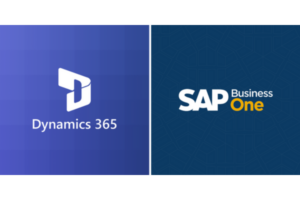The Importance of Productivity and Efficiency in Chemical Manufacturing
In the highly competitive chemical manufacturing industry, productivity and efficiency are crucial factors for success. With increasing market demands and complex supply chains, manufacturers need to find ways to streamline processes and maximize output while minimizing costs. This is where ERP solutions come into play.eliminate redundancies, and improve overall productivity. With real-time visibility into inventory levels, production schedules, and customer orders, manufacturers can make informed decisions and efficiently allocate resources. This leads to improved production planning, reduced lead times, and increased customer satisfaction.
In addition, ERP solutions enable better collaboration and communication between different departments within the organization. With a centralized platform, employees can easily access and share information, resulting in smoother workflow and reduced errors. This integration of processes eliminates data silos and ensures that everyone is working towards a common goal.
Another challenge is managing complex formulas and recipes. Chemical manufacturing often involves precise measurements and intricate formulas that must be followed to produce high-quality products. ERP solutions provide tools for managing formulas, tracking ingredient usage, and ensuring consistency in production. This not only improves product quality but also reduces the risk of errors and waste.
Additionally, the chemical manufacturing industry faces supply chain complexities. Manufacturers rely on a network of suppliers, distributors, and logistics providers to deliver raw materials and finished products. ERP solutions enable better supply chain management by providing real-time visibility into inventory levels, optimizing procurement processes, and improving demand forecasting. This leads to reduced stockouts, lower carrying costs, and improved overall supply chain efficiency.
How ERP Solutions Can Revolutionize Chemical Manufacturing
ERP solutions have the power to revolutionize the chemical manufacturing industry by addressing the unique challenges faced by manufacturers. These solutions offer a range of features and benefits that can transform how businesses operate and drive growth.
One of the key ways ERP solutions revolutionize chemical manufacturing is by automating manual tasks. Inventory management, order processing, and production planning can be time-consuming and prone to errors when done manually. ERP solutions automate these processes, reducing the need for manual data entry and streamlining operations. This frees up valuable time and resources, allowing employees to focus on more critical activities such as research and development or customer service.
Real-time data analytics and reporting are another game-changer provided by ERP solutions. With the ability to access up-to-date data on production metrics, sales performance, and customer trends, manufacturers can make data-driven decisions. This enables them to identify areas for improvement, optimize production schedules, and respond quickly to changing market demands. By leveraging real-time insights, chemical manufacturers can stay ahead of the competition and seize new opportunities.
Improved communication and collaboration are also significant benefits of ERP solutions. In a complex manufacturing environment, effective communication between different departments is essential for smooth workflow and efficient operations. ERP solutions provide a centralized platform where employees can access and share information, ensuring everyone is on the same page. This eliminates the need for manual data transfer and reduces the risk of miscommunication or duplication of efforts.
Furthermore, ERP solutions integrate all aspects of chemical manufacturing into a single system. This eliminates data silos and disjointed systems, providing a holistic view of the business. From production planning to supply chain management and sales, all functions are seamlessly connected, enabling better coordination and control. This integration improves overall efficiency, reduces costs, and enables faster decision-making.
Key Features and Benefits of ERP Solutions for Chemical Manufacturing
ERP solutions offer a range of features and benefits that are specifically designed to address the needs of the chemical manufacturing industry. Let’s explore some of the key features and how they can benefit chemical manufacturers.
- Formula and Recipe Management: ERP solutions provide tools for managing complex formulas and recipes. Manufacturers can track ingredient usage, ensure consistency in production, and easily modify formulas as needed. This streamlines the production process, reduces errors, and improves product quality.
- Inventory Management: Accurate inventory management is essential for chemical manufacturers. ERP solutions enable real-time visibility into inventory levels, allowing manufacturers to optimize stock levels, reduce carrying costs, and avoid stockouts. This ensures that production is not hampered due to lack of raw materials or finished products.
- Compliance and Safety: ERP solutions help chemical manufacturers comply with safety regulations by automating documentation, tracking safety data, and ensuring adherence to regulatory requirements. This reduces the risk of penalties and damage to the company’s reputation.
- Quality Control: Maintaining consistent product quality is crucial for chemical manufacturers. ERP solutions provide tools for quality control, enabling manufacturers to track quality metrics, conduct inspections, and manage non-conformances. This ensures that products meet the required standards and reduces the risk of recalls or customer dissatisfaction.
- Supply Chain Management: ERP solutions enable better supply chain management by providing real-time visibility into inventory levels, optimizing procurement processes, and improving demand forecasting. This leads to reduced stockouts, lower carrying costs, and improved overall supply chain efficiency.
- Sales and Customer Relationship Management: ERP solutions provide tools for managing sales orders, tracking customer information, and improving customer service. With a centralized platform, manufacturers can better understand customer needs, provide personalized service, and build strong customer relationships.
Implementing ERP solutions in the chemical manufacturing industry
Implementing an ERP solution in the chemical manufacturing industry requires careful planning and execution. Here are some key steps to consider:
- Assessing Business Needs: Before implementing an ERP solution, it’s important to assess your business needs and identify the specific challenges you want to address. This will help you choose the right ERP system that aligns with your requirements.
- Selecting the Right ERP Solution: There are numerous ERP solutions available in the market, each with its own set of features and capabilities. It’s important to carefully evaluate different options and choose the one that best fits your business needs. Consider factors such as scalability, industry-specific functionality, ease of use, and vendor reputation.
- Planning and Preparation: Proper planning and preparation are crucial for a successful ERP implementation. This includes defining project goals, allocating resources, and identifying key stakeholders. Establish a clear timeline and milestones to ensure a smooth transition.
- Data Migration and Integration: Data migration is a critical step in ERP implementation. Ensure that your data is clean, accurate, and compatible with the new system. Consider integrating the ERP solution with existing systems or third-party applications to ensure seamless data flow across different departments.
- Training and Change Management: ERP implementation requires training employees on the new system and processes. Provide comprehensive training to ensure employees understand how to use the system effectively. Additionally, consider implementing change management strategies to address any resistance or challenges during the transition.
- Testing and Evaluation: Before going live, thoroughly test the ERP system to identify any issues or areas that need improvement. Conduct user acceptance testing to ensure the system meets your business requirements. Regularly evaluate the system’s performance and make necessary adjustments as needed.
Choosing the right ERP solution for your chemical manufacturing business
Choosing the right ERP solution for your chemical manufacturing business is crucial for a successful implementation. Consider the following factors when selecting an ERP solution:
- Industry-specific Functionality: Look for an ERP solution that offers industry-specific functionality tailored to the needs of chemical manufacturers. This includes features such as formula management, compliance tracking, and quality control.
- Scalability: Choose an ERP solution that can accommodate your business’s growth and evolving needs. Ensure that the system can handle increased production volumes, additional product lines, and expanding customer base.
- Ease of Use: The usability of the ERP system is important for user adoption and overall productivity. Look for a solution that is intuitive and user-friendly, with a clear and organized interface.
- Integration Capabilities: Consider the ERP system’s integration capabilities with existing systems and third-party applications. Seamless data flow between different departments and systems is essential for efficient operations.
- Vendor Reputation and Support: Research the reputation and track record of the ERP solution provider. Look for vendors with experience in the chemical manufacturing industry and a history of successful implementations. Additionally, ensure that the vendor provides comprehensive training and ongoing support.
Training and support for ERP solutions in the chemical manufacturing industry
Training and support are crucial for successful ERP implementation and user adoption. Here are some key considerations for training and support:
- Comprehensive Training: Provide comprehensive training to employees on how to use the ERP system effectively. This includes training on system navigation, data entry, reporting, and any industry-specific functionality. Consider providing both classroom training and hands-on practice sessions to ensure understanding.
- User Manuals and Documentation: Provide user manuals and documentation that outline the system’s features and functionalities. These resources can serve as a reference for employees and help them navigate the system independently.
- Ongoing Support: Ensure that the ERP solution provider offers ongoing support, including technical assistance and system updates. This ensures that any issues or challenges that arise after implementation can be addressed promptly.
- User Feedback and Continuous Improvement: Encourage user feedback on the ERP system’s usability and functionality. Regularly evaluate the system’s performance and gather input from users to identify areas for improvement. This feedback loop helps ensure that the ERP system continues to meet the evolving needs of your business.
Conclusion: Embracing ERP solutions for a brighter future in chemical manufacturing
In conclusion, ERP solutions are a game-changer for the chemical manufacturing industry. With their ability to streamline processes, enhance data visibility, and improve collaboration, ERP solutions revolutionize the way chemical manufacturers operate. By automating manual tasks, providing real-time analytics, and integrating all aspects of the business, ERP solutions boost productivity, reduce costs, and improve customer satisfaction.
Embrace ERP solutions and unlock the full potential of your chemical manufacturing business. Stay ahead of the competition, navigate complex challenges, and thrive in the ever-evolving industry. Revolutionize your chemical manufacturing process with ERP solutions and pave the way for a brighter future.






